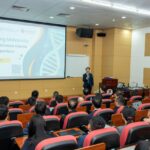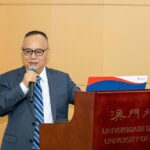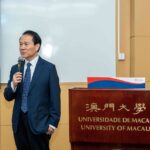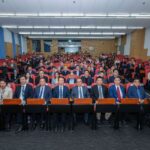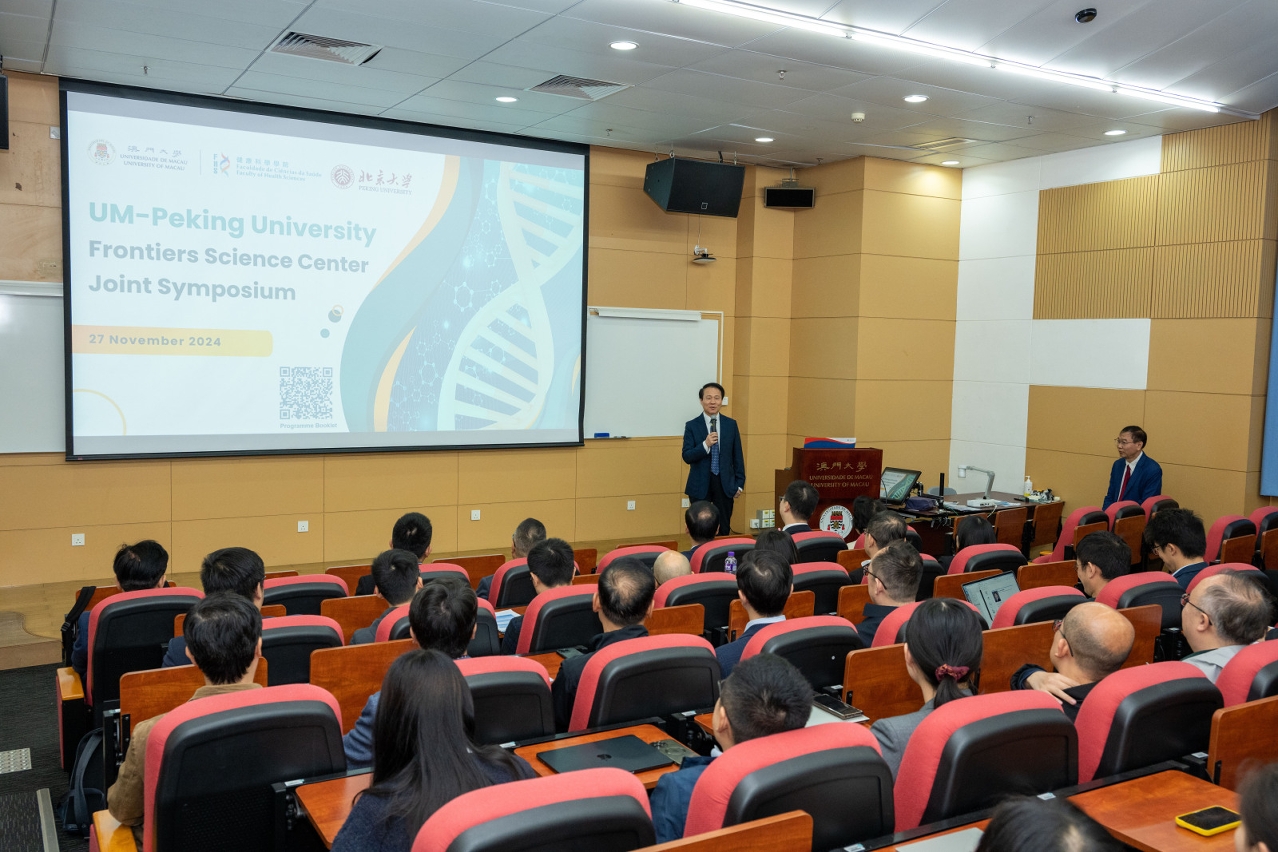 UM and PKU jointly hold the Frontiers Science Center Joint Symposium
UM and PKU jointly hold the Frontiers Science Center Joint Symposium
The UM-Peking University Frontiers Science Center Joint Symposium was held today (27 November) at the University of Macau (UM). Jointly organised by the Faculty of Health Sciences (FHS) of UM, the Ministry of Education Frontiers Science Center for Precision Oncology (FSCPO) of UM, and the Frontiers Science Center for Cancer Integrative Omics (FSCCIO) of Peking University (PKU), the event brought together around 150 experts and researchers in biomedical sciences to discuss the latest developments in cancer treatment.
During his speech at the opening ceremony, UM Rector Yonghua Song said that since relocating to the Hengqin campus ten years ago, UM has made significant progress in research, particularly in strategic research areas such as precision oncology. In the Times Higher Education World University Rankings 2024, UM achieved a record high position in the subject of ‘clinical and health’, ranking among the top 200 universities in the world. This achievement is a recognition of UM’s significant breakthroughs in clinical and health research, especially in its focus on cancer research. In addition, Song highlighted UM’s plan to establish a new campus on Hengqin Island, which will include a new Faculty of Medicine along with several other new faculties. He expressed hope that the new campus can contribute to the sustainable development of Macao and enhance the well-being of the community.
Zhan Qimin, academician of the Chinese Academy of Engineering and director of PKU’s FSCCIO, said in his speech that FSCCIO, established following the creation of UM’s FSCPO, focuses on cancer integrative omics research. With similar research focuses and a shared research foundation, members of these two national research centres could leverage this joint symposium to exchange knowledge, deepen cooperation, and advance the development of research.
The aim of the joint symposium was to explore the frontiers of cancer research, including the latest developments, translations, and challenges in precision oncology and cancer integrative omics research, such as immunotherapy, cancer mechanisms, and drug resistance in cancer. Strategies to identify new technologies and theories to combat cancer were also discussed. The joint symposium featured 12 inspiring presentations by leading scientists from UM’s FSCPO and PKU’s FSCCIO. Speakers from FSCCIO included Prof Zhan; Zhang Ning, director of the Translational Cancer Research Center at Peking University First Hospital and deputy director of the International Cancer Institute (ICI) at PKU; Wang Jiatong, Boya Distinguished Professor at PKU; Zhang Hongquan, deputy director of ICI at PKU; Zheng Chunhong and Wang Hua, assistant professors in ICI at PKU. Speakers from FSCPO included Chuxia Deng, chief scientist of FSCPO and dean of FHS; Chen Xin, director of the Institute of Chinese Medical Sciences and director of the State Key Laboratory of Quality Research in Chinese Medicine of UM; Di Lijun and Zhao Qi, associate professors in FHS; as well as Ding Xiaofan and Hou Jiajie, assistant professors in FHS. Participants actively engaged in the Q&A and discussion sessions during the symposium, fostering academic exchange and presenting a ‘feast’ of knowledge.
In his closing remarks, Prof Deng noted that this was the second time UM collaborated with another top Frontiers Science Center to organise a joint symposium. He said that the event enabled leading cancer research experts from the two centres to have in-depth discussions on their respective frontier research discoveries. Furthermore, the symposium laid a foundation for promoting interdisciplinary innovative research collaboration and contributed to the overall technological advancement in medical science as well as the well-being of mankind.


